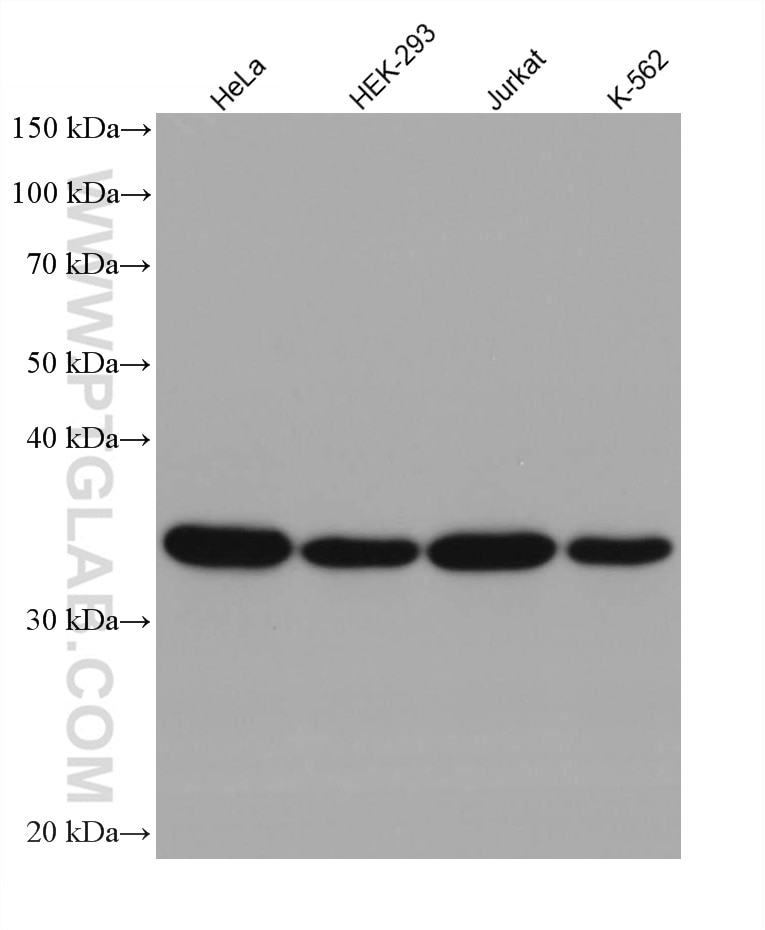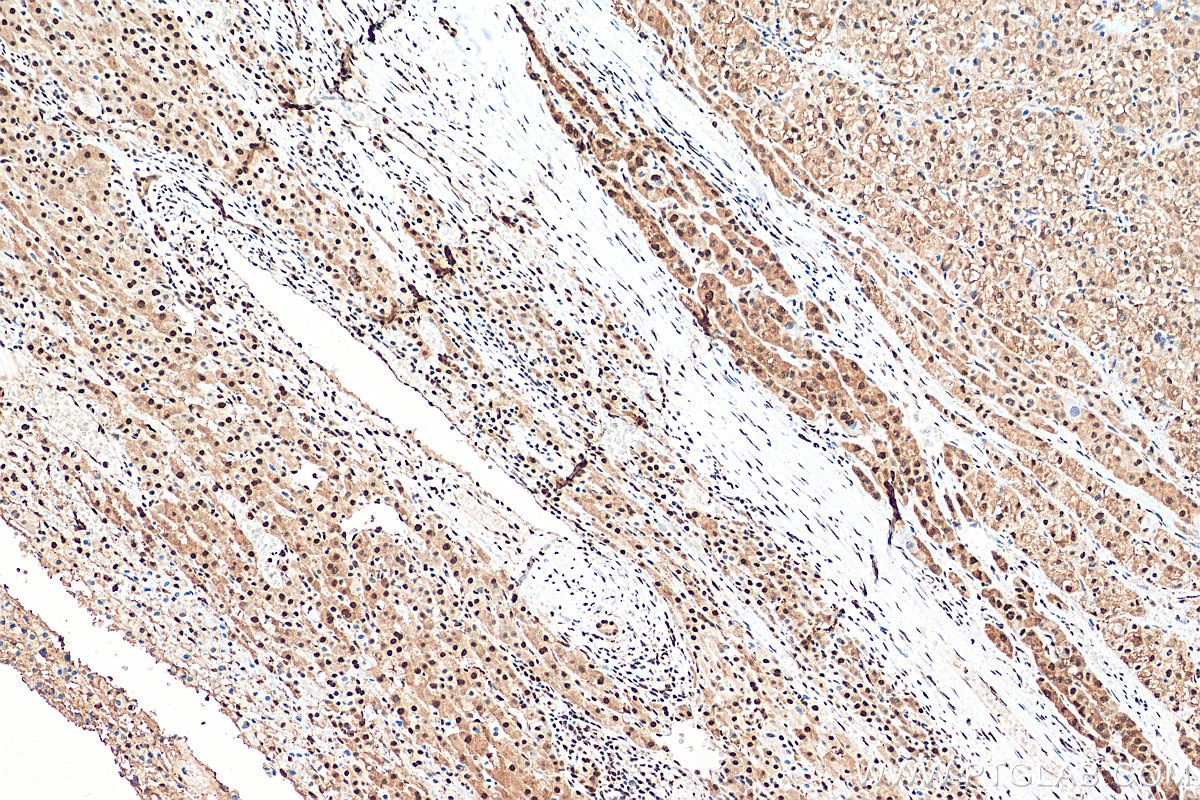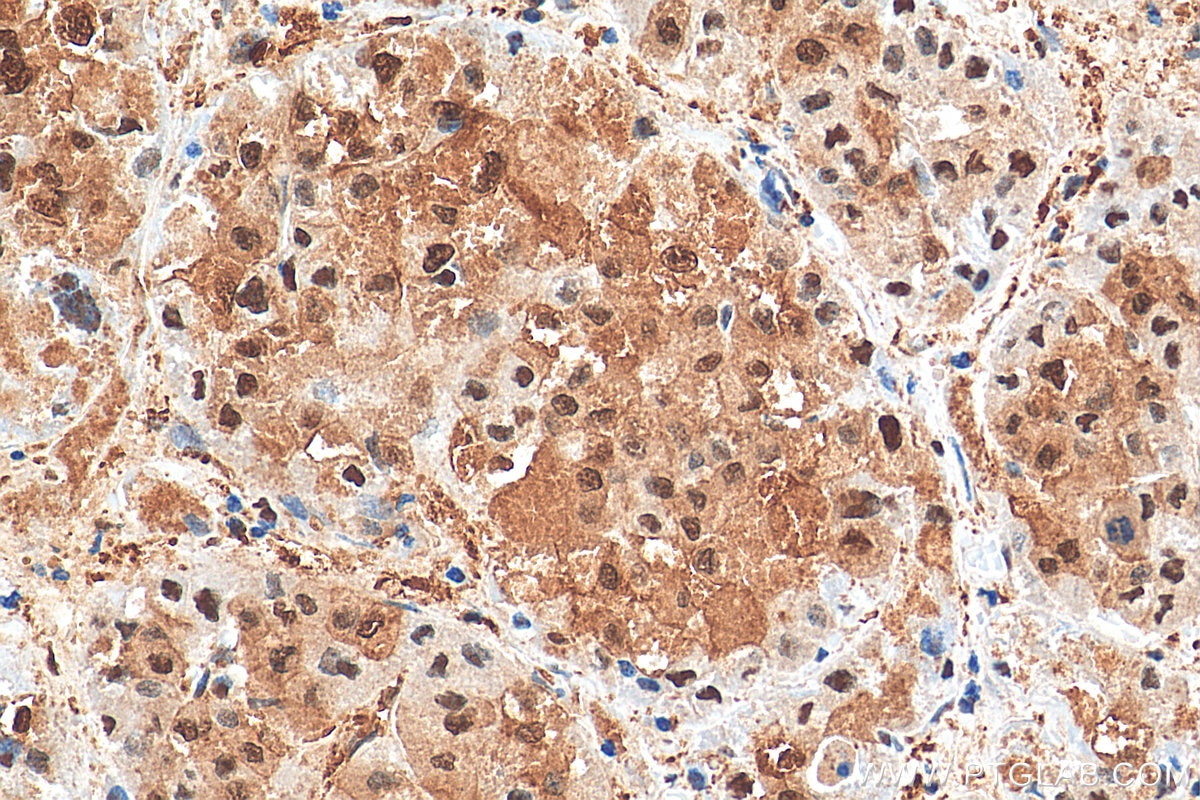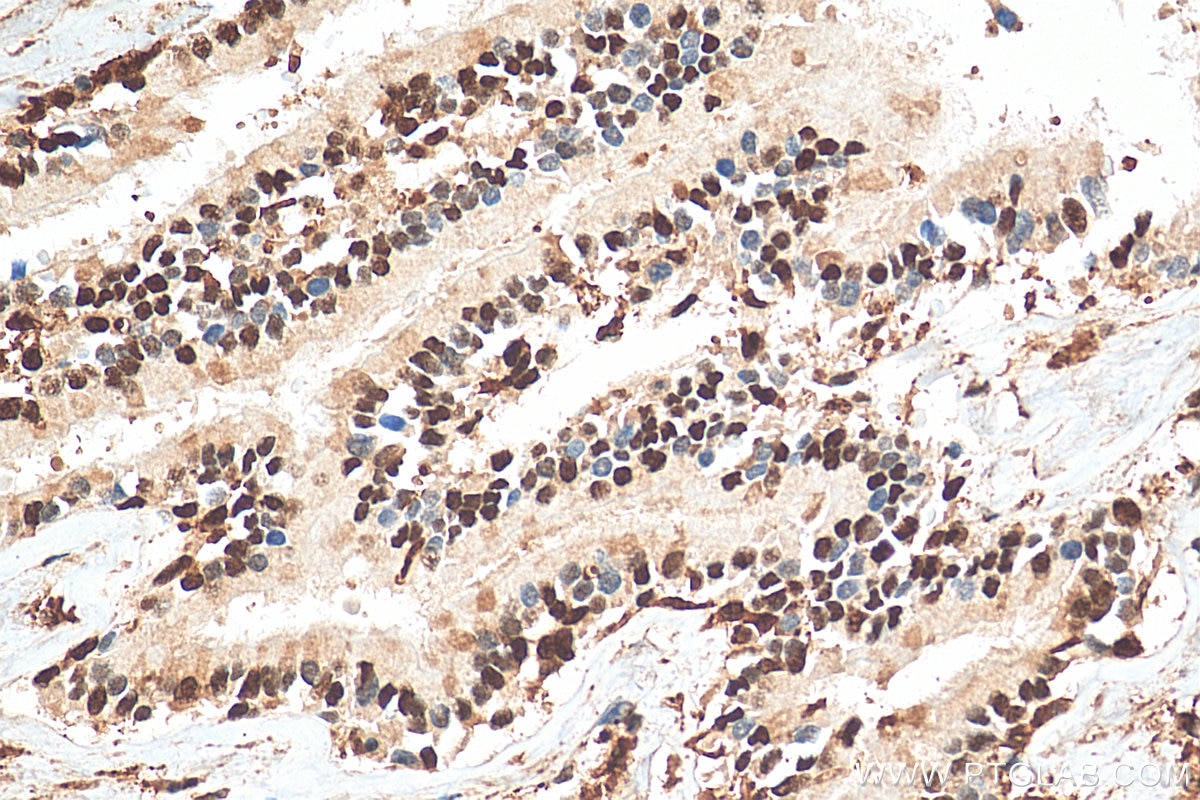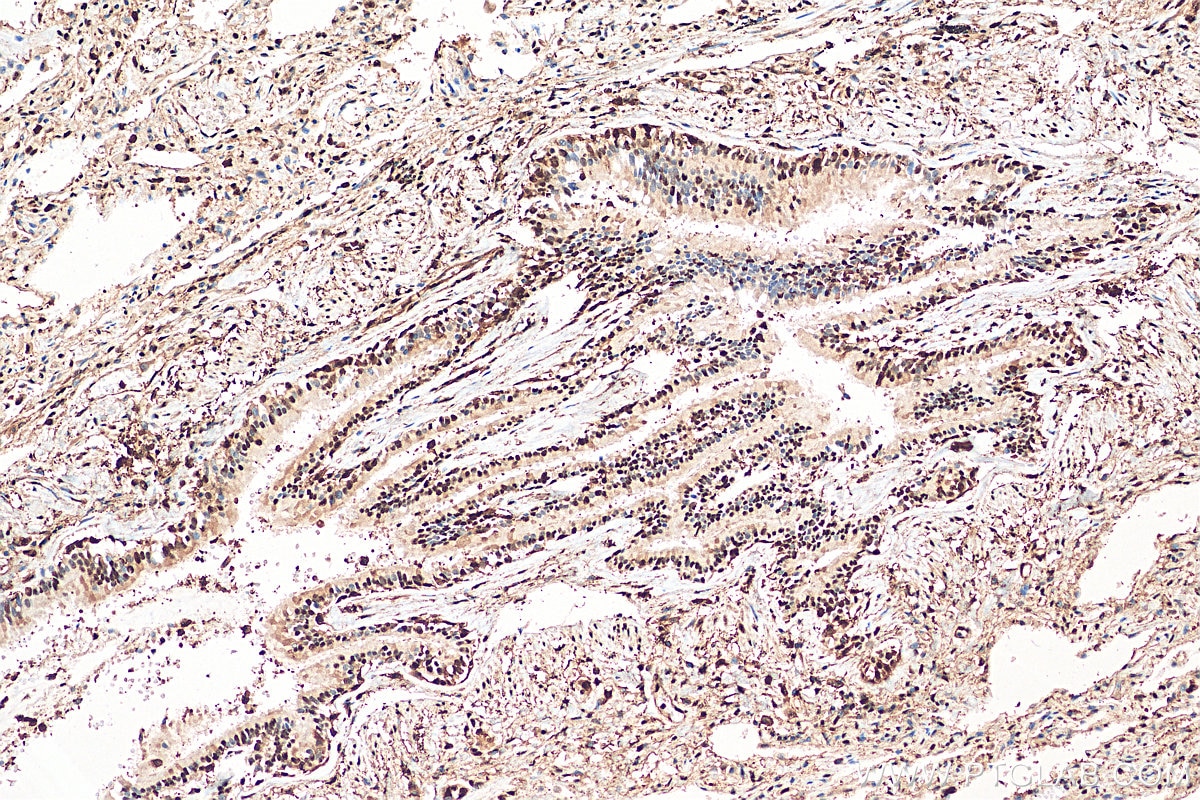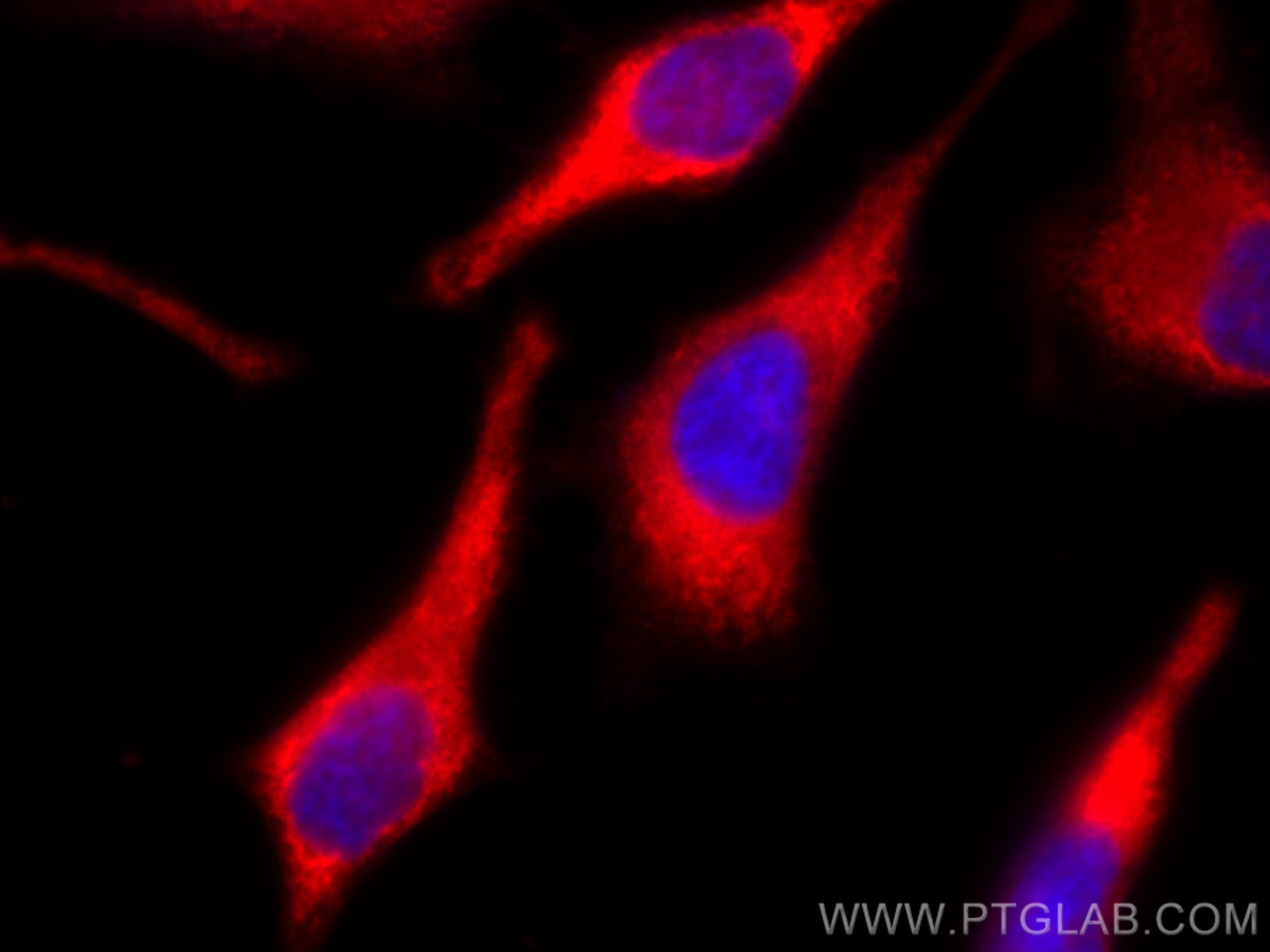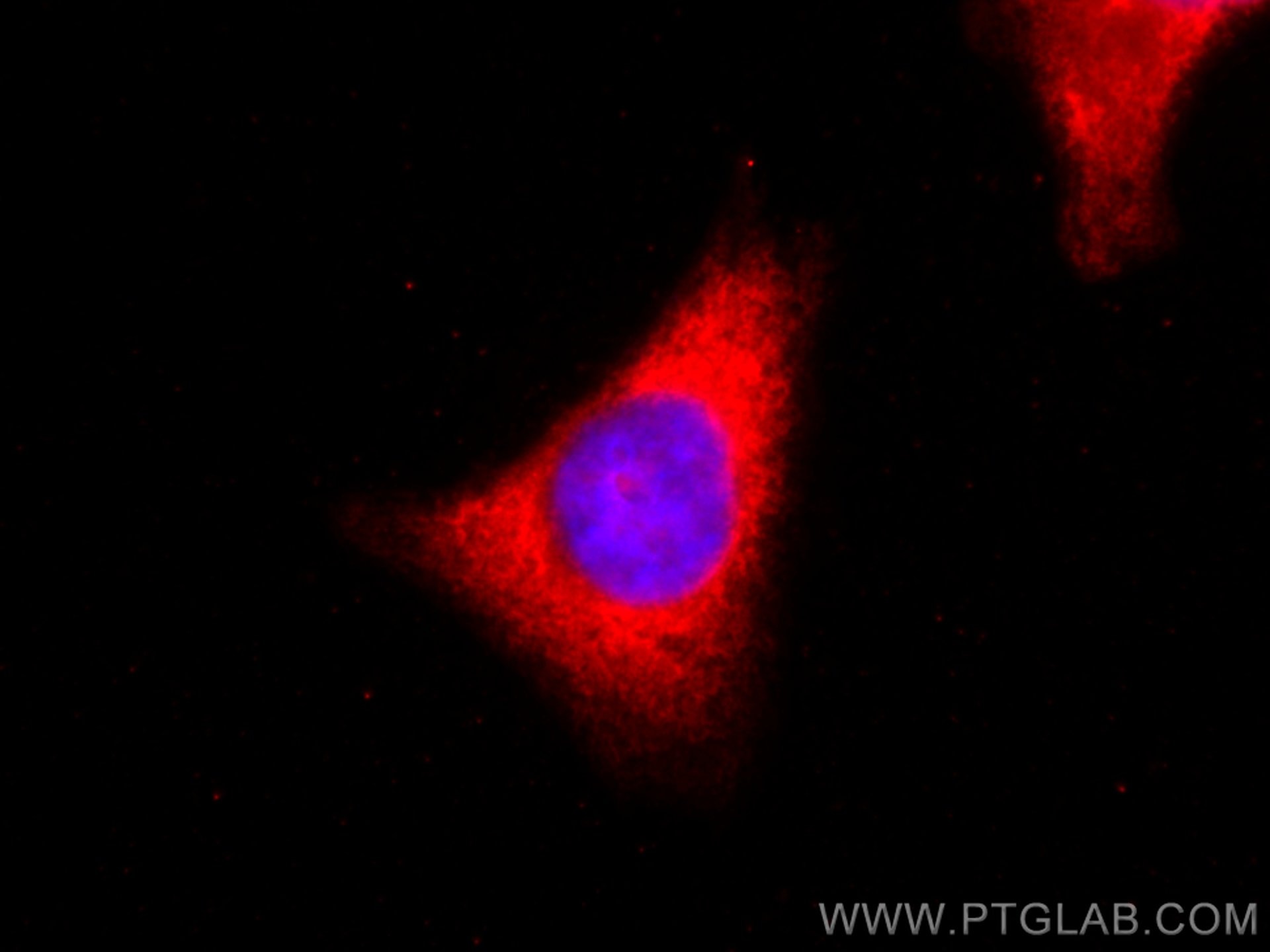GAPDH (Human Specific) Rekombinanter Antikörper
GAPDH (Human Specific) Rekombinant Antikörper für IF, IHC, WB, ELISA
Wirt / Isotyp
Kaninchen / IgG
Getestete Reaktivität
human
Anwendung
WB, IHC, IF, ELISA
Konjugation
Unkonjugiert
CloneNo.
2G21
Kat-Nr. : 80570-1-RR
Synonyme
Galerie der Validierungsdaten
Geprüfte Anwendungen
| Erfolgreiche Detektion in WB | HeLa-Zellen, HEK-293-Zellen, Jurkat-Zellen, K-562-Zellen |
| Erfolgreiche Detektion in IHC | humanes Leberkarzinomgewebe, humanes Lungengewebe Hinweis: Antigendemaskierung mit TE-Puffer pH 9,0 empfohlen. (*) Wahlweise kann die Antigendemaskierung auch mit Citratpuffer pH 6,0 erfolgen. |
| Erfolgreiche Detektion in IF | HeLa-Zellen |
Empfohlene Verdünnung
| Anwendung | Verdünnung |
|---|---|
| Western Blot (WB) | WB : 1:2000-1:16000 |
| Immunhistochemie (IHC) | IHC : 1:400-1:1600 |
| Immunfluoreszenz (IF) | IF : 1:200-1:800 |
| It is recommended that this reagent should be titrated in each testing system to obtain optimal results. | |
| Sample-dependent, check data in validation data gallery | |
Veröffentlichte Anwendungen
| WB | See 6 publications below |
Produktinformation
80570-1-RR bindet in WB, IHC, IF, ELISA GAPDH (Human Specific) und zeigt Reaktivität mit human
| Getestete Reaktivität | human |
| In Publikationen genannte Reaktivität | human |
| Wirt / Isotyp | Kaninchen / IgG |
| Klonalität | Rekombinant |
| Typ | Antikörper |
| Immunogen | GAPDH (Human Specific) fusion protein Ag0766 |
| Vollständiger Name | glyceraldehyde-3-phosphate dehydrogenase |
| Berechnetes Molekulargewicht | 36 kDa |
| GenBank-Zugangsnummer | BC004109 |
| Gene symbol | GAPDH |
| Gene ID (NCBI) | 2597 |
| Konjugation | Unkonjugiert |
| Form | Liquid |
| Reinigungsmethode | Protein-A-Reinigung |
| Lagerungspuffer | PBS mit 0.02% Natriumazid und 50% Glycerin pH 7.3. |
| Lagerungsbedingungen | Bei -20°C lagern. Nach dem Versand ein Jahr lang stabil Aliquotieren ist bei -20oC Lagerung nicht notwendig. 20ul Größen enthalten 0,1% BSA. |
Hintergrundinformationen
Glyceraldehyde-3-phosphate dehydrogenase (GAPDH) catalyzes the phosphorylation of glyceraldehyde-3-phosphate during glycolysis. GAPDH participates in nuclear events including transcription, binding RNA, RNA transportation, DNA replication, DNA repair and apoptosis. Being stably and constitutively expressed at high levels in most tissues and cells, GAPDH is considered a housekeeping protein. It is widely used as a control for RT-PCR and also loading control in electrophoresis and Western blotting. GAPDH is normally expressed in cellular cytoplasm or membrane, but can occasionally translocate to the nucleus after the addition of post-translational modifications such as S-nitrosylation. This antibody is raised against full length GAPDH of human origin. It can recognize the 36 kDa GAPDH protein in most cells/tissues. In addition, a band below 36 kDa can always be detected as the isoform or spliced product of GAPDH (PMID: 23885286, 23877755, 19368702). Please note that some physiological factors, such as hypoxia and diabetes, increase GAPDH expression in certain cell types. For murine tissue samples, conjugated mouse antibody HRP-60004 and rabbit antibody 10494-1-AP are preferable. 80570-1-RR is human specific.
Protokolle
| Produktspezifische Protokolle | |
|---|---|
| WB protocol for GAPDH (Human Specific) antibody 80570-1-RR | Protokoll herunterladen |
| IHC protocol for GAPDH (Human Specific) antibody 80570-1-RR | Protokoll herunterladen |
| IF protocol for GAPDH (Human Specific) antibody 80570-1-RR | Protokoll herunterladen |
| Standard-Protokolle | |
|---|---|
| Klicken Sie hier, um unsere Standardprotokolle anzuzeigen |
Publikationen
| Species | Application | Title |
|---|---|---|
Mater Today Bio Sustained release of naringin from silk-fibroin-nanohydroxyapatite scaffold for the enhancement of bone regeneration. | ||
Front Mol Biosci SLC7A11, a Potential Therapeutic Target Through Induced Ferroptosis in Colon Adenocarcinoma. | ||
J Biochem Mol Toxicol ATL1 inhibits the proliferation and invasion of trophoblast cells via inhibition of the mTOR signaling pathway | ||
Diagn Pathol The multi-omics analyses of acsl1 reveal its translational significance as a tumor microenvironmental and prognostic biomarker in clear cell renal cell carcinoma | ||
Medicine (Baltimore) Integrated analysis of potential biomarkers associated with diabetic periodontitis development based on bioinformatics: An observational study | ||
J Cancer Res Clin Oncol High expression of cuproptosis-related gene FDX1 in relation to good prognosis and immune cells infiltration in colon adenocarcinoma (COAD) |
